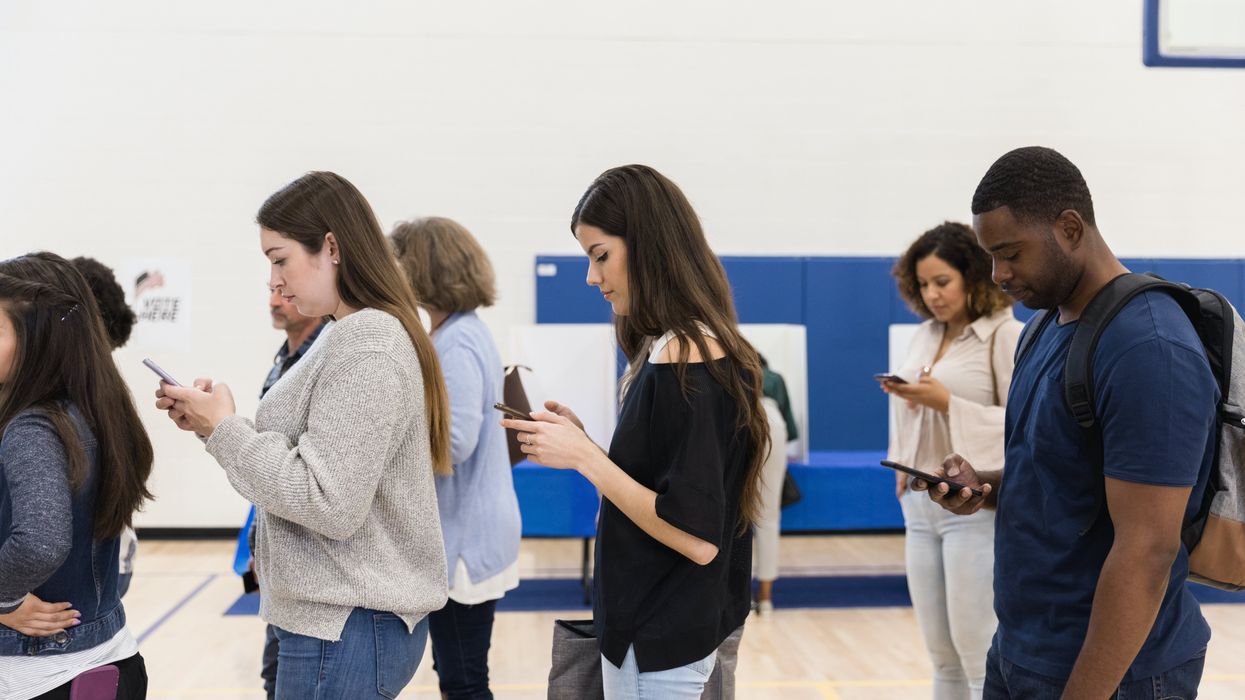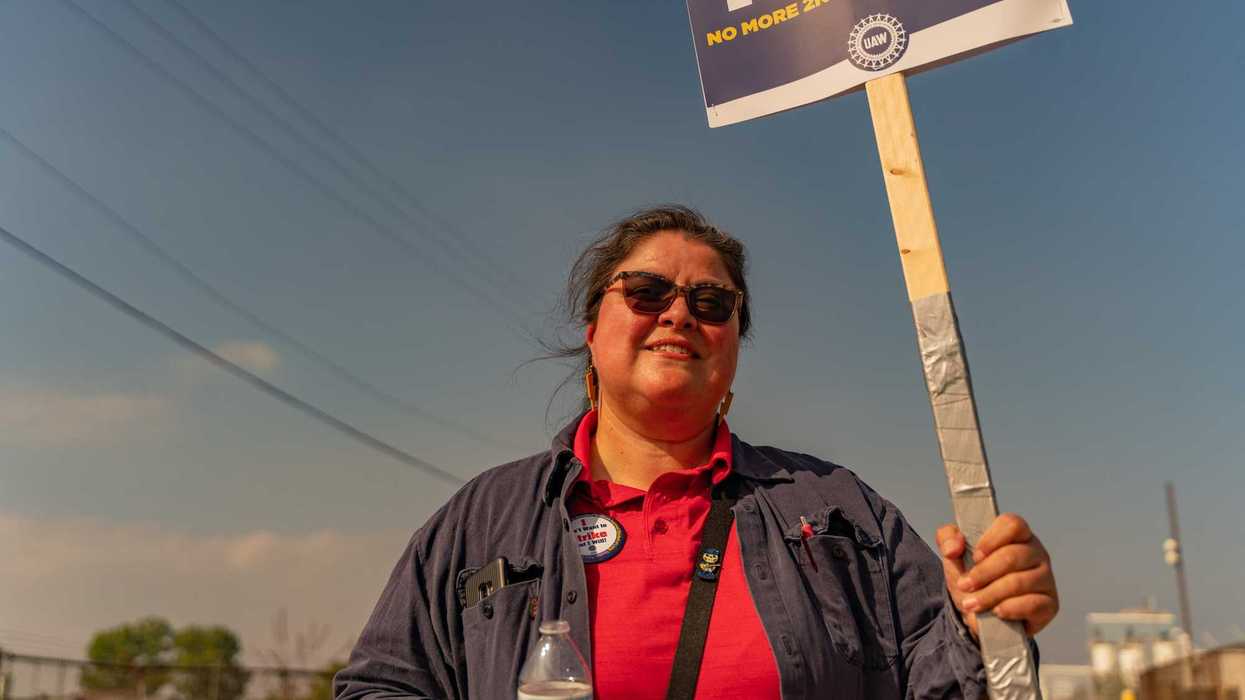With voters across the nation worried about whether their mail-in ballots will be counted or if they will face obstruction at the polls, two unique and easy-to-use new technology tools have emerged just in time to put unprecedented power in the hands of the electorate.
The first has been rolled out only in recent days — the result of a crash effort this fall by an astonishing team of high-tech and political experts.
We have dubbed it DFWMV.org — with a tagline explaining how the acronym stands for "Don't F*** with my vote," and helpfully including nine family-friendly options for what else could be in place of those asterisks.
It is a free, easy to use and mobile-optimized website. It lets voters use their smartphones or other devices to directly report and record when and where they voted (geolocated or entered by hand), describe any problems they encountered, and take a photo showing themselves mailing their ballot, outside the polls, or any problems they experienced. The whole process takes less than a minute.
Until now, voters returning their absentee ballots using a drop box or the Postal Service have had no way of proving they voted if they find out that election officials have not recorded their votes. While most states have at least some tracking mechanisms to record when ballots reach the post office and the elections offices, such a service is not comprehensive or even universally available in several big states.
Knowing when a ballot reaches landmarks along its journey toward tabulation is valuable, but it doesn't tell when the ballot was actually mailed or dropped off to begin with. And trackers cannot reveal what may have happened to ballots that were sent or dropped off properly but never got recorded or counted. There has also been no way of knowing or getting in touch with voters who may have been tricked by fake ballot boxes, such as those being placed by the Republican Party in several purple parts of California in recent days.
The new website solves those problems and enables voters and election officials for the first time to do several things that are valuable for protecting our electoral democracy:
- Track how long it takes to process remotely cast ballots.
- Reveal if any of those ballots have not made it to the desired destination.
- Identify and locate those who may have been tricked by bogus ballot boxes.
- Rapidly contact voters directly if problems are identified.
DFWMV can also enable in-person voters to report when and where they voted and make a record, including photos, of any obstructions or other problems.
Until now, voter protection efforts at the polls have relied on toll-free telephone hotlines — useful but somewhat cumbersome efforts dependent on teams of volunteers answering calls, taking down aggrieved voters' information, then passing that up the chain for further legal or other action. As important as such systems are, they can be overwhelmed by a large number of legitimate calls coming in simultaneously — such as when the polls close at 8 pm Eastern this Nov. 3 in all or parts of 21 states, including the battlegrounds of Pennsylvania, Michigan, Texas and much of Florida.
Volunteer operators can also be easily swamped by even a relatively small number of malevolent callers tying up the lines with fake cries for help in order to prevent legitimate complaints from getting through. Here, again, our new site solves those problems with the capacity to handle up to 10,000 data entries per second and with no need to wait on hold or go through operators on the phone.
I was privileged to lead the team of volunteers who worked practically round the clock to get this site launched in time, for the sole purpose of making sure this election is fair and every vote is counted.
For those who prefer to use text messaging instead of a website, an alternative is ResistBot. To access this a voter simply texts to 50409 and then enters the word Protect. A sequence of interactive texts collects their voting address and the date, time and location where they voted or tried to vote — then gives space to report problems. Voters are also encouraged to take photos on their own and to call the election protection hotline (866-Our-Vote) if they have an immediate problem.
More than 33 million Americans have already voted, but the vast majority of votes have still yet to be cast. So there is still time for voters, even those who have already cast ballots, to make a record of where and when they cast their ballots.
One can hope that taking such precautions will not prove necessary. But hope is not a very good protection for the most important election of our lifetimes. Evidence and data are far more effective legal resources.
With DFWMV and ResistBot, voters now have easy and rapid ways of creating such evidence in case it is needed. That should help voters sleep a little easier. And it just might make those who would steal or disrupt the election lose a little sleep.



















Why does the Trump family always get a pass?